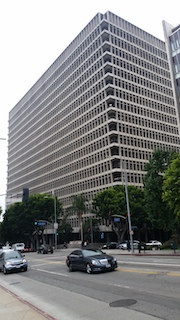This article is written for a police officer facing criminal charges and a parallel administrative hearing, to provide him or her information on what to expect and how to best position oneself to win in court or at least provide mitigating information for the administrative hearing so the officer can keep his or her job.
First and foremost, it is good to appreciate that an officer charged with a crime, i.e. DUI or a sex offense, while on duty is almost certainly subject to termination, as such conduct would surely violate the officer’s contract of employment.
When the alleged crime occurs off-duty, the officer will almost always need to report the incident to his or her union representative, who will initiate an investigation. The best thing for the officer to do is cooperate, but also retain experienced criminal defense counsel who regularly appears in the courthouse at issue.
We find that many police officers who we have represented have a clear understanding of only part of the criminal process. They are knowledgeable about arrest and evidence suppression issues, but often do not appreciate issues involving delays in prosecution, prosecutorial discovery abuses and charge-specific issues that affect issues of proof. Raising such issues can often result in dismissal of the criminal case.
Moreover, a good criminal defense attorney can help resolve the case in a way that helps mitigate the effects of any administrative action. For example, the client can complete a significant amount of rehabilitative classes, i.e. Alcoholics Anonymous, Narcotics Anonymous, animal abuse classes, anger management classes, batterer’s classes, kleptomaniacs classes or Sexaholics Anonymous classes, depending upon the case facts. A good criminal defense attorney can develop evidence undermining a victim’s credibility and minimizing restitution owed, if any.
It is critical to recognize for any officer facing an administrative investigation of criminal activity that the officer has no absolute constitutional or statutory right to remain silent during the investigation.
Lybarger v. City of Los Angeles (1985) 40 Cal.3d 822, 827, 221 Cal.Rptr. 529. The officer may be compelled to answer questions under threat of disciplinary action, although no statement made by the officer under such compulsion may be used against the officer in a criminal proceeding.
Lybarger, supra. If the officer choses to remain silent, that silence could be considered insubordination and lead to administrative discipline.
Lybarger, supra. For this reason, we strongly recommend that the officer retain separate counsel just for the administrative hearing, especially one who regularly represents officers in that particular department, because the officer does have certain rights under the Public Safety Officers Procedural Bill of Rights (Government Code §§ 3300-3313).
If the reader of this article is an aspiring police officer about to apply to become a police officer or a sheriff and the person has a prior case that was resolved with a delayed entry of judgment (DEJ) program, it is important that this person, under Penal Code § 1000.4(b), must disclose arrest in response to “any direct question contained in any questionnaire or application.”
For more information about facing a criminal case, diversion and state licensing issues, please click on the following articles:
- Why Hire a Private Attorney? Why Shouldn’t One Use the Public Defender?
- Is Diversion Available for Veterans in a DUI? Yes
- What Does the New Law in 2015 Concerning Expunged Convictions Mean for State License Applications?
Contact us. Clara Shortridge Foltz CCB Courthouse
Clara Shortridge Foltz CCB Courthouse Redondo Beach PD Patch
Redondo Beach PD Patch